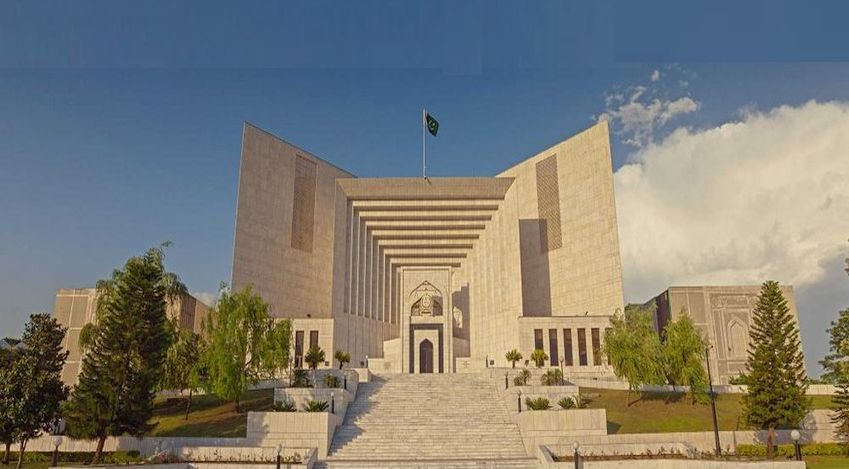The Rent Controller has jurisdiction for fixation of fair rent considering various factors such as the cost of construction, the prevailing rent in the locality, and any taxes imposed after the start of the Tenancy --- Supreme Court of Pakistan
Islamabad 12-09-2024: The Supreme Court of Pakistan, in a recent judgment dated July 19, 2024, dismissed a series of civil petitions challenging the fixation of rent for several units in the Abid Chamber, Karachi. The petitions were filed against a consolidated judgment by the High Court of Sindh, which upheld the decisions of the Rent Controller and the Appellate Court regarding the fair rent for the premises.
The case arose from applications filed by the landlord, Sheikh Abid & Co., under Section 8 of the Sindh Rented Premises Ordinance, 1979. The landlord sought the fixation of fair rent for multiple tenants occupying various units in Abid Chamber, a commercial property located on Sharah-e-Liaquat, Karachi. After evaluating the evidence, the Rent Controller fixed the rent at Rs. 9 per square foot per month, retroactive from the date of application.
The tenants, dissatisfied with this decision, challenged it in First Rent Appeals, which were subsequently dismissed by the Appellate Court. In further appeals, the tenants approached the Sindh High Court under constitutional petitions, which were also dismissed. The tenants then filed petitions in the Supreme Court of Pakistan.
The tenants argued that the Rent Controller failed to consider crucial evidence and did not follow the correct procedure under Section 8 of the Ordinance. They claimed that the landlord had not provided sufficient proof of prevailing rent in the same locality and that the building’s condition and facilities did not justify the rent increase. Moreover, the tenants contested the shift from a lump sum rent agreement to a per square foot rate.
The Supreme Court of Pakistan rejected the tenants’ arguments, affirming that the Rent Controller had thoroughly reviewed the necessary evidence, including increases in taxes, construction costs, and comparable rents in the area. The Court emphasized that the tenants themselves had admitted that rent had not increased since 1997, despite rising taxes and maintenance costs. The Court held that the landlord had provided sufficient justification for the rent increase, and the tenants failed to produce any counter-evidence.
Referring to previous cases involving other tenants of the same building, where the rent was similarly fixed at Rs. 9 per square foot, the Supreme Court of Pakistan noted that both the High Court and Supreme Court of Pakistan had upheld those decisions, making the current challenge redundant.
The judgment reiterated the framework of the Sindh Rented Premises Ordinance, 1979, particularly Section 8, which outlines the criteria for determining fair rent. The Court explained that the Rent Controller must consider various factors such as the cost of construction, the prevailing rent in the locality, and any taxes imposed after the start of the tenancy. It also highlighted Section 9, which limits any increase in rent for three years after fixation unless substantial changes occur in taxes or repairs.
The Court further discussed the Rent Controller’s powers under Section 20 and the process of execution of rent-related orders under Section 22, underscoring that tenants must seek relief from the Rent Controller regarding any outstanding rent arrears or payment terms.
In its final order, the Supreme Court of Pakistan found no legal or factual errors in the concurrent decisions of the Rent Controller, Appellate Court, and High Court, dismissing all civil petitions filed by the tenants. The Court also advised the tenants to approach the landlord directly for any negotiations regarding the payment of arrears, which could be addressed by the Rent Controller under Section 22 of the Ordinance.
This ruling upholds the judicial process for fixing fair rent under the Sindh Rented Premises Ordinance, 1979, and serves as a precedent for future rent-related disputes in Karachi and other urban areas in Pakistan.
Powered by Froala Editor








